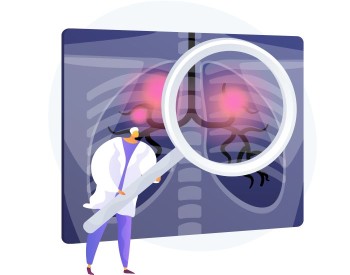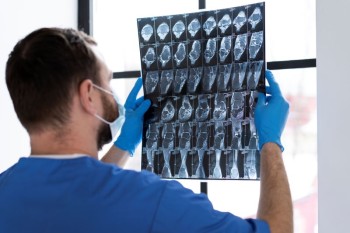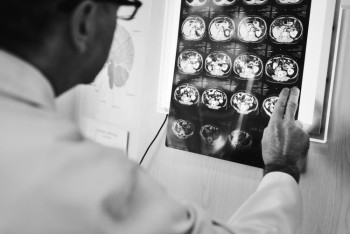
CT Scan IVP is an advanced imaging procedure utilizing computed tomography to capture detailed cross-sectional images of the kidneys, ureters, and bladder.
CT Scan IVP in India with Cost
CT Scan IVP: Navigating
Intricate Renal Imaging
Introduction
Unveiling Renal Clarity with CT Scan IVP
CT Scan IVP, or Computed Tomography Intravenous Pyelogram, stands as a significant diagnostic tool for in-depth renal imaging. This comprehensive guide aims to unravel the significance, procedure, and applications of CT Scan IVP, providing a thorough understanding of its role in renal health diagnostics.
Understanding CT Scan IVP
What is CT Scan IVP?
CT Scan IVP is an advanced imaging procedure utilizing computed tomography to capture detailed cross-sectional images of the kidneys, ureters, and bladder. This Intravenous Pyelogram involves the injection of contrast dye to enhance the visibility of the urinary tract.
The Significance of CT
Scan IVP
Precision in Renal Imaging
CT Scan IVP plays a crucial role in achieving precision in renal imaging, offering detailed views of the urinary system to identify conditions such as kidney stones, tumors, or structural abnormalities.
Enhanced Visualization with Contrast Dye
The use of contrast dye enhances the visualization of the urinary tract, allowing healthcare professionals to identify abnormalities with heightened clarity.
The Procedure: A Step-by-Step Guide
Patient Preparation
Patients undergoing CT Scan IVP typically require preparation, including fasting and hydration. It's essential to communicate any allergies or relevant medical history to the healthcare team.
Contrast Injection and Image Acquisition
The contrast dye is injected intravenously, and the CT scanner captures multiple high-resolution images, providing detailed cross-sectional views of the kidneys, ureters, and bladder.
Applications of CT Scan IVP
Diagnosing Kidney and Ureteral Conditions
CT Scan IVP is highly effective in diagnosing conditions affecting the kidneys and ureters, such as kidney stones, tumors, or blockages, with enhanced clarity provided by the contrast dye.
Identifying Structural Abnormalities
The detailed imaging capabilities of this scan make it an invaluable tool for identifying structural abnormalities affecting renal health, contributing to accurate diagnoses.
Advantages and Considerations
Advantages of CT Scan IVP
Enhanced Clarity with Contrast Dye
CT Scan IVP provides enhanced clarity in visualizing renal structures, ensuring accurate assessment and aiding in the identification of various renal conditions.
Quick and Comprehensive Imaging
The procedure is relatively quick, providing comprehensive imaging of the urinary system in a single session, contributing to efficient diagnosis and treatment planning.
Considerations and Precautions
Contrast-Related Considerations
While generally safe, the medical team considers any potential allergies or kidney issues that might affect contrast utilization.
Radiation Exposure
As with any CT scan, consideration is given to radiation exposure. The healthcare team carefully evaluates the benefits against the risks for each patient.
Conclusion
In conclusion, CT Scan IVP emerges as a pivotal diagnostic tool, providing detailed and high-resolution images for precise assessment of renal conditions. From kidney stones to structural abnormalities, this imaging technique significantly contributes to enhancing renal health diagnostics.
FAQs: Clarifying CT Scan IVP
1. Is CT Scan IVP a painful procedure?
No, the procedure is generally well-tolerated. Patients may experience mild discomfort during contrast injection.
2. How long does a CT Scan IVP take?
The procedure typically takes around 30 to 60 minutes, depending on the patient's condition.
3. Are there any dietary restrictions before a CT Scan IVP?
Fasting may be required before the procedure. Patients are advised to follow any instructions provided by the healthcare team.
4. Can pregnant women undergo CT Scan IVP?
While generally avoided during pregnancy, in specific cases, the benefits and risks are carefully evaluated to make an informed decision.
5. How often is CT Scan IVP recommended for follow-up examinations?
Follow-up scans are scheduled based on the individual's medical history and the presence of specific renal conditions.
6. Can individuals with allergies undergo CT Scan IVP?
Generally, individuals with allergies can undergo the procedure. It's crucial to inform the healthcare team about any known allergies, especially to contrast dye, to take necessary precautions.
7. What does the contrast dye in CT Scan IVP involve?
The contrast dye, usually iodine-based, is injected intravenously to enhance the visibility of the urinary tract during imaging. It helps healthcare professionals obtain clearer images for accurate diagnosis.
8. Is CT Scan IVP suitable for pediatric patients?
CT Scan IVP can be performed on pediatric patients when deemed necessary. The healthcare team considers the child's specific medical situation, ensuring that benefits outweigh potential risks.
9. Are there any side effects of contrast dye in CT Scan IVP?
While rare, some individuals may experience mild side effects such as nausea or allergic reactions to the contrast dye. These reactions are closely monitored and managed by the healthcare team.
10. How soon can results be expected after a CT Scan IVP?
Results are typically available shortly after the procedure. The healthcare team reviews and interprets the images, and the findings are communicated to the patient during a follow-up appointment.
(0)
Login to continue



